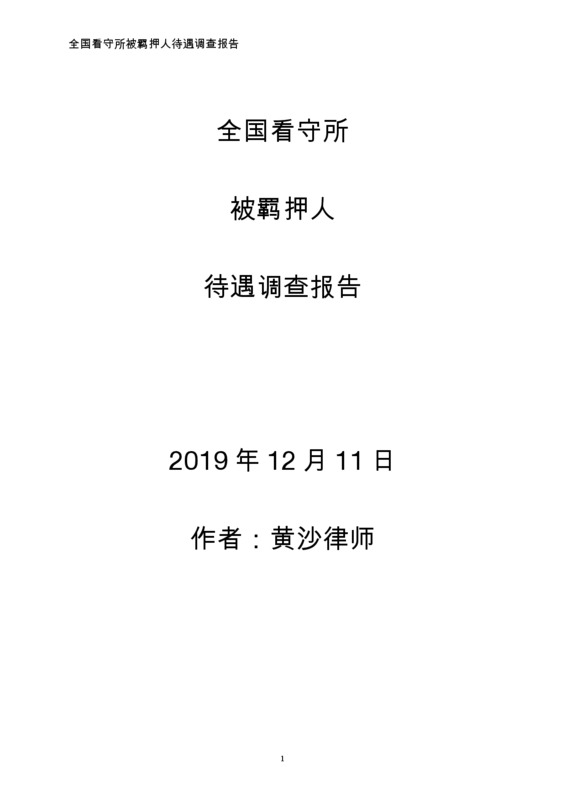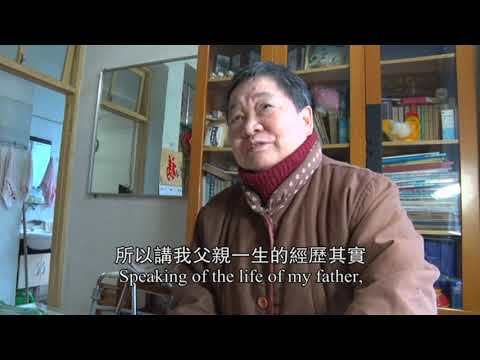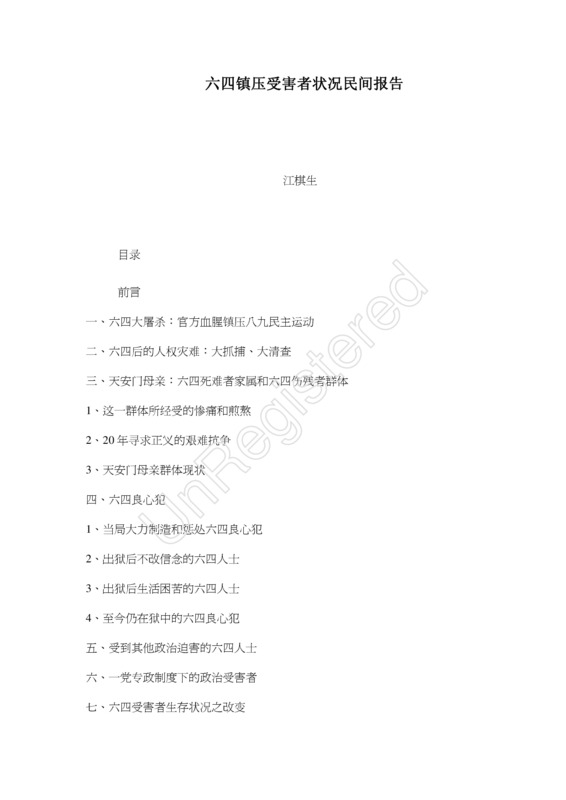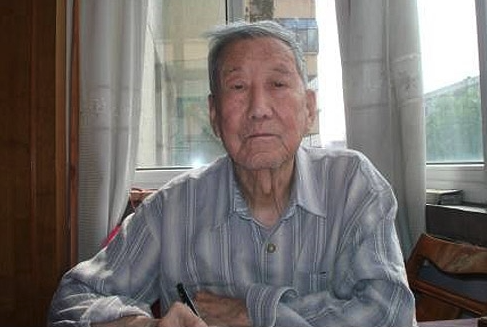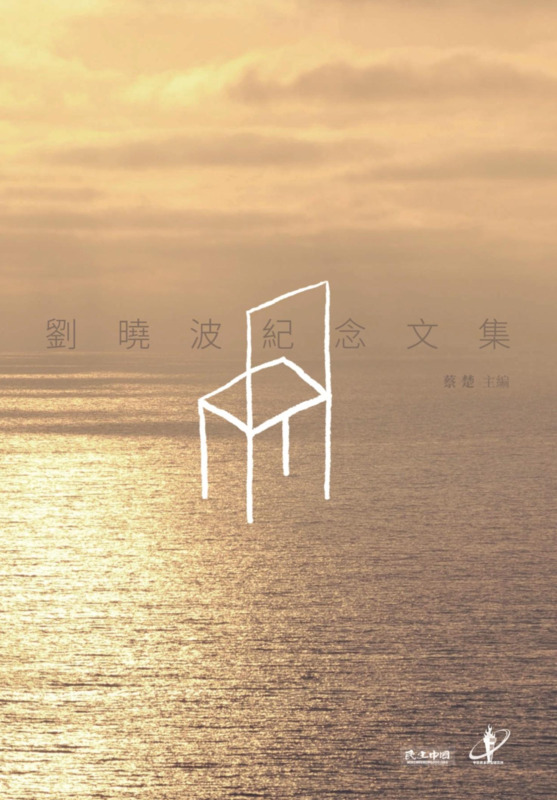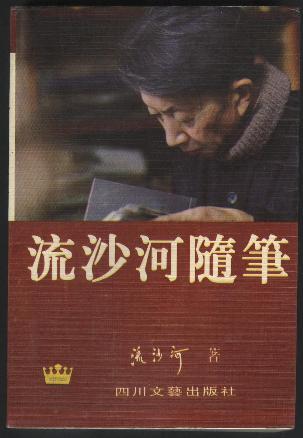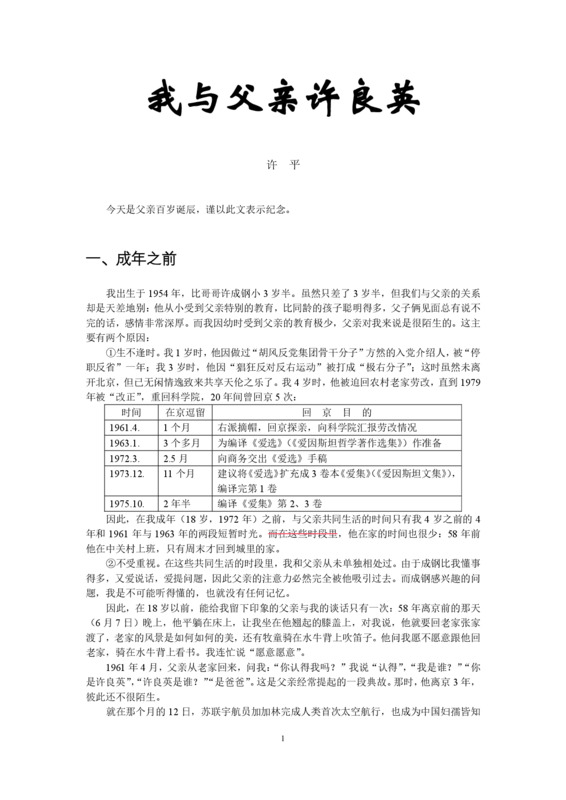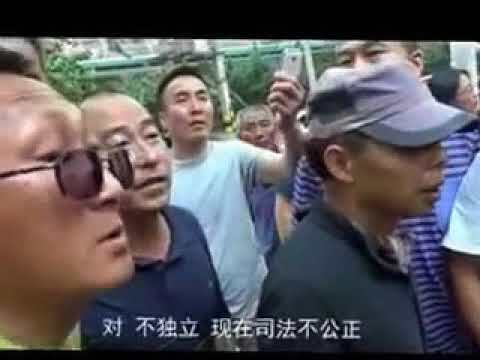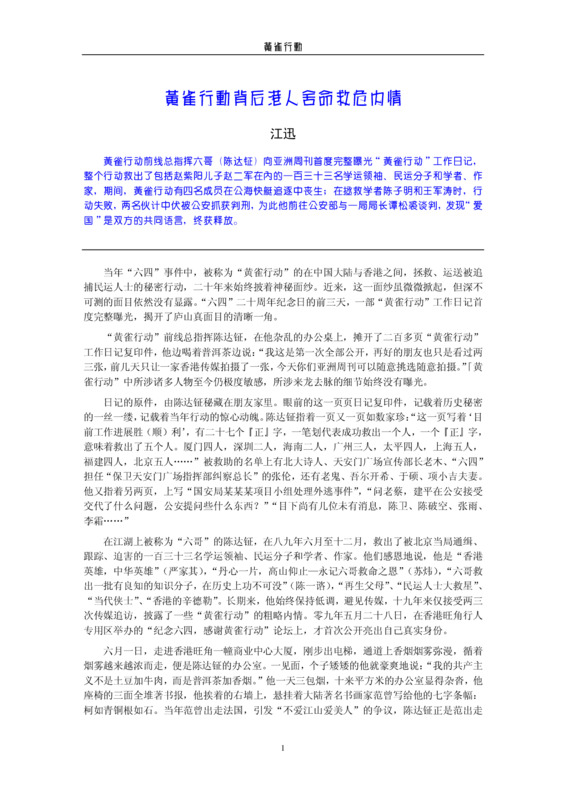Explore the collection
Showing 129 items in the collection
129 items
Book
Hu Yaobang and the Vindication of Wrongful Convictions.
This book recounts Hu Yaobang's efforts to overturn people falsely accused of being "Rightists" during the Anti-Rightist Campaign of the 1950s. It is written by Dai Huang (1928-2016, formerly known as Dai Shulin), a Communist propagandist and later senior editor at the Xinhua News Agency, who was also persecuted in the Mao era and rehabilitated thanks to Hu's efforts.
This means that the book is not entirely objective–Dai does not analyze too closely Hu's history of slavishy following Mao's policies. Instead, he aims to capture the excitement felt by the hundreds of thousands who suffered in the Mao era and who were rehabilitated in the 1970s and '80s thanks to Hu. At 300,000 Chinese characters, or more than 200,000 English words, it is a weighty compendium that includes previously unreported details of famous public intellectuals and party members persecuted by the party and how Hu rehabilitated them. For example, Dai recounts the case of Ge Peiqi, who was a Communist Party spy who was toppled for his opposition to the party's corruption and privilege. Dai explains the case in depth and how Ge was eventually cleared.
Dai represented a liberal wing of the party that believed in the need for the party to address its mistakes. At his funeral people such as Du Daozheng (the editor of China Through the Ages 炎黄春秋) and Tie Liu (publisher of the alternative history journal 往事微痕) attended. The book also contains a preface by Li Rui, who participated in China Through the Ages and was also a mainstay of the party's liberal wing.
Article
Huang Sha, 2019 National Survey on the Treatment of Detainees in Custodial Facilities
This report focuses on the human rights situation in detention centers in China. Mr. Huang Sha distributed the questionnaire to the practicing lawyers he knew, and then the practicing lawyers took the questionnaire and filled it out in the form of questions and answers when they met detainees in the detention centers. The questionnaires were then collected and counted, resulting in a research report. The span of time for filling out the questionnaire in the detention center is: from July 2, 2019 to November 19, 2019. There were 101 valid questionnaires recovered.
电影及视频
In Search of Lin Zhao's Soul
Hu Jie narrates the life of Lin Zhao, a Christian dissident who was condemned as a Rightist in the late 1950s and executed during the Cultural Revolution. Prior to becoming a mentcritic of the government, Lin Zhao was an ardent believer of communism. She demonstrated talent in writing and speaking as a star student in Peking University. However, after criticizing the government in 1957 during the Hundred Flowers Campaign, she was cast as anti-revolutionary. Despite the government’s attempts to silence her, Lin Zhao continued to speak and write publicly, including contributing two epic poems to Spark, an underground student-run journal. In 1960, she was arrested, and despite being released briefly in 1962, spent the rest of her life behind bars, under extremely poor living conditions. Nevertheless, she continued to write in prison, sometimes with her blood. In 1968, at the age of 36, she was executed by a firing squad.
In this documentary, Hu Jie showcases many of Lin Zhao’s surviving writings and poetry. These pieces often contain criticisms of the communist regime, as well as commentary on policy issues pertaining to labor and land reform. In making this film, Hu Jie traveled around China to interview friends and associates of Lin Zhao, who knew her as a student, activist, or prisoner. This documentary includes excerpts from interviews with them, which inform us about Lin Zhao’s personality and motivations.
This documentary has contributed to a widespread revival of interest in Lin Zhao, who had almost become a forgotten figure until the film’s appearance.
Book
In Search of My Homeland
“In Search of My Homeland” is a collection of essays in three volumes written by Gao Ertai during his exile abroad. In this book, Gao looks back on his life. From his hometown of Gaochun, a small town in Jiangsu Province, to Suzhou, then to Lanzhou, Jiuquan, Dunhuang, Beijing, Chengdu, and the United States, Gao has undergone tremendous suffering, lost his home and family, and finally had to go into exile in a foreign country. Even though the work is widely regarded as having great literary merit, Gao uses real names and places, which makes the work a valuable historical document, especially for describing the Great Famine, and the brutal suppression of intellectual life during the Cultural Revolution at the Dunhuang research academy, which is one of China's most prestigious cultural institutions.
In an [interview](https://web.archive.org/web/20240130211408/https://www.aisixiang.com/data/80804.html), Gao explained why he wrote the book: "Searching for my homeland is nothing but searching for meaning.... Life is short and small, and its meaning can only be rooted in the external world and in the long history. My sense of drift and meaninglessness, that is, a feeling that the world has no order, history has no logic, and the individual has no home, seems to be a kind of destiny. My writing is nothing but a resistance to this destiny."
In 2004, a censored version of the first two volumes of this book was published by Huacheng Publishing House in Guangzhou; in 2011, an updated version was published by Beijing October Arts and Literature Publishing House, but still censored. The version uploaded to our archive is the traditional Chinese version of the complete three volumes published by Taiwan INK Publishing House in 2009.
Film and Video
Jiabiangou Elegy: Life and Death of the Rightists
A five-part documentary by the filmmaker and feminist scholar Ai Xiaoming on the persecution of inmates at the Jiabiangou labor camp in Jiuquan, Gansu province, where more than 2,000 people died. The movie includes interviews with the few remaining survivors and documents efforts to commemorate the dead. The director interviewed survivors of Jiabiangou and the children of the victims and listened to their stories about the past; she also found former correctional officers and their descendants to understand the causes of labor camps and the Great Famine from different angles.
Shot by Ai and a team of volunteers, the film presents the conflict between the preservation and destruction of memory.
Article
Jiang Qisheng: Civilian Report on the Situation of June 4 Victims in China
The Tiananmen Square massacre on June 4, 1989 and the subsequent mass arrests and purges created tens of thousands of June Fourth victims. Among them were June Fourth victims who fell into a pool of blood, the June Fourth disabled who were shot, the families of the June Fourth victims and the severely disabled, the June Fourth prisoners of conscience who were sentenced to imprisonment or re-education-through-labor, and the June Fourth victims who were subjected to other political persecution. On the occasion of the 20th anniversary of June Fourth, as part of Chinese civil society's efforts to recover the historical truth and rebuild historical memory, this report gives a basic description of the suffering of the June Fourth victims and their arduous journey over the past 20 years. It also analyzes the systemic factors that have contributed to the victims' suffering and proposes corresponding recommendations on how to change their living conditions.
Book
Journey of Grace, The
Li Jinghang, a native of Tianshui City, Gansu Province, 1922-2016, graduated from the Mathematics Department of the Northwest Normal College in 1949. In the fall of the same year, he was employed as a mathematics teacher at Tianshui No. 1 Middle School. In 1957, he was wrongly classified as a Rightist and sent to Jiuquan, Gansu Province to be reeducated through labor for nearly three years; in 1960, he resumed his work as a teacher at Tianshui No. 1 Middle School. In 1962, he removed his hat as a Rightist. He was rehabilitated in 1978. In 1980, he was transferred to Tianshui Teachers' College (which was upgraded to an undergraduate institution in 2000). After retiring in the fall of 1987, he joined the Church to serve full-time.
In 1957, Li Jinghang was labeled a rightist and sent to Jiabiangou for re-education through labor. In 1960, he was transferred to the Mingshuihe Farm in Gaotai, where the conditions were even worse, and he was subjected to a great deal of torture and abuse. The fourth chapter of his autobiography, "Chronicle of the bitter life in Jiabiangou," and the fifth chapter, "Chronicle of the life after returning home," are written about his bitter experience in Jiabiangou. From this, we can see the glory of humanity and the power of faith in the midst of suffering. This book was published by a Hong Kong Tianma Book Company Limited in 2003, with a print run of 2,000 copies, and reprinted once in 2004.
Film and Video
Let the Sunshine Reach the Earth
Wang Lihong is a Beijing netizen, civilian journalist, and public service volunteer. Wang was accused of “picking quarrels and provoking trouble” for supporting three netizens in Fujian. On August 12, 2011, the case was heard for the first time in the Wenyuhe Court of the People's Court of Chaoyang District, Beijing. This film includes interviews with Wang Lihong's relatives, friends, defense lawyers and netizens, and records the historical scene of onlookers in the courts.
Ai Xiaoming’s film “Postcard,” also released in 2011, elaborates Wang Lihong’s activism in broader strokes, while “Let the Sunshine Reach the Earth” focuses on the process of her trial.
This film is in Chinese with Chinese subtitles.
Book
Lin Zhao: No Longer Forgotten
This book contains a number of articles in memory of Lin Zhao. It concerns the death of Lin Zhao as well as Lin Zhao's love, pursuits, and disillusionment. This book was published by Changjiang Literature and Art Publishing House in 2000.
Book
Liu Xiaobo Memorial Anthology
This book is a collection of essays in memory of the Nobel Peace Prize winner Liu Xiaobo. It was edited by Cai Chu following his death.
Book
Liushahe Essay
Liushahe is a famous Chinese writer and scholar, who entered Sichuan University in the fall of 1949, and was criticized and stigmatized nationwide during the 1957 Anti-Rightist Movement for his work *Grass and Trees* named by Mao Zedong himself, and then subjected to a variety of labor reforms (building roads during the day and sawing wood in the evening) for a cumulative total of 20 years. In 1979, he was transferred back to the Sichuan Provincial Literature Federation. Since 1985 he has been writing full-time, and has published a number of books, including *Essays on the Liusha River*. This book was published by Sichuan Literature and Art Publishing House in 1995. Many of the essays are related to his experiences when he was under labor reform. In November 2019, Liushahe passed away in Chengdu at the age of 88 due to illness.
Book
Mao in Power (1949-1976)
The author of this book, Shan Shaojie, is a scholar from mainland China. For several years, he wrote this book from an independent position. Former political secretary of Mao Zedong, Li Rui, and Princeton University professor, Yu Yingshi, wrote the foreword for this book. In addition to a systematic account of the Maoist era, Shan Shaojie's book "Mao in Power" emphasizes that almost all members of the Communist Party's highest decision-making echelons, with the exception of Mao Zedong, made efforts, in varying degrees and successively, to stop Mao's insanity. Moreover, they took turns to resist and ultimately to leave Mao alone, but did not really stop Mao's madness. This book was published by Linking Publishing in 2001 and has been reprinted several times.
Book
Mao: The Unknown Story
This book presents the dramatic life of Mao Zedong, revealing a wealth of unheard-of facts: why Mao joined the Communist Party, how he came to sit at the top of the Chinese Communist Party, and how he seized China step by step. Writers Jung Chang and her husband Jon Halliday took ten years to complete this book, interviewing hundreds of Mao's relatives and friends, Chinese and foreign informants and witnesses who worked and interacted with Mao as well as dignitaries from various countries.
Purchase link:https://www.amazon.com/Mao-Story-Jung-Chang/dp/0679746323.
Film and Video
Memory of Lin Zhao
Independent director Tiger Temple began shooting this film in 2010 and completed it in 2012, with subsequent revisions. The film features interviews with Lin Zhao's former lover Gan Cui as well as interviews with several independent scholars such as Qian Liqun and Cui Weiping. It is a powerful addition to Lin Zhao's memory. This film was selected as one of the top 20 finalists in the 2012 Sunshine Chinese Documentary Awards.
Article
My Father Xu Liangying
Xu Liangying is a well-known Chinese physicist, thinker and social activist. He has translated “The Collected Works of Albert Einstein”, published by The Commercial Press (three volumes, 1979). He was branded as a rightist in his youth, but in his later years he pursued constitutional democracy and became an outspoken public intellectual. This is a memoir written by his son Xu Ping after his passing in 2013.
Book
My Mother :Gao Yaojie
Author Eva writes about her relationship with Gao Yaojie, a Chinese doctor. Dr. Gao Yaojie, who was severely repressed by the Chinese government for exposing the mass infection of Chinese farmers in Henan Province, China, by selling their blood, had no choice but to leave China at the age of 78 and go into exile in the United States. The dissemination of her story is strictly forbidden in China. In this book, author Eva describes Gao Yaojie's noble heart, her story, and her experiences.
Book
New Biographies of the 1957 Rightists
According to official CCP statistics, some 550,000 people were directly labeled as rightists and persecuted during the Anti-Rightist campaign. These people, as well as others implicated in the campaign, are mostly unknown, except for a very few. The author, Shen Yuan, who was also labeled as a rightist when he was a university student in 1958, devoted himself to collecting and researching historical data on the anti-rightist campaign. He has compiled a book entitled Biographies of the 1957 Rightists, which attempts to present the truth about the Anti-Rightist campaign and its victims. The book is divided into four volumes of about 1.2 million words, containing the stories of about 600 rightists and about 240 historical photographs. 2016 marked the 60th anniversary of the Anti-Rightist campaign, and Shen Yuan used the original book as the basis for his New Biographies of the 1957 Rightists, expanding the number of people included to 1,588. Sha Yexin and Wu Yisan were both involved in the compilation of this book.
Film and Video
New Citizens’ Trial
In late January 2014, on the eve of the Lunar New Year, Xu Zhiyong, Zhao Changqing, Ding Jiaxi and other advocates of the New Citizens’ Movement were charged with "gathering a crowd to disrupt order in a public place." The case was heard for the first time in courts at different levels in Beijing. This film intersperses on-site records with interviews with defense lawyer Zhang Qingfang, scholar Guo Yuhua, entrepreneur Wang Ying, and others to present citizens' understanding of the New Citizens' Movement.
This series of films are in Chinese with Chinese subtitles.
Film and Video
Onlookers
People from all over China rush to the scene of China's trial of Bo Xilai, the former Chongqing Party Secretary of the Communist Party of China. The trial took place in August 2013 at the Jinan Intermediate People's Court in Shandong Province. Reporter Liu Xiangnan captured the scene.
Article
Operation Yellow Bird
After the bloody suppression of the June 4 Democracy Movement, the Chinese Communist Party went on a massive manhunt for the key figures of the movement. Some Hong Kong people organized a secret channel to help pro-democracy activists escape from the Mainland, codenamed "Operation Yellow Bird." The author of this book, Jiang Xun, is a veteran of the media and describes in detail how the "Yellow Bird Operation" took place.

